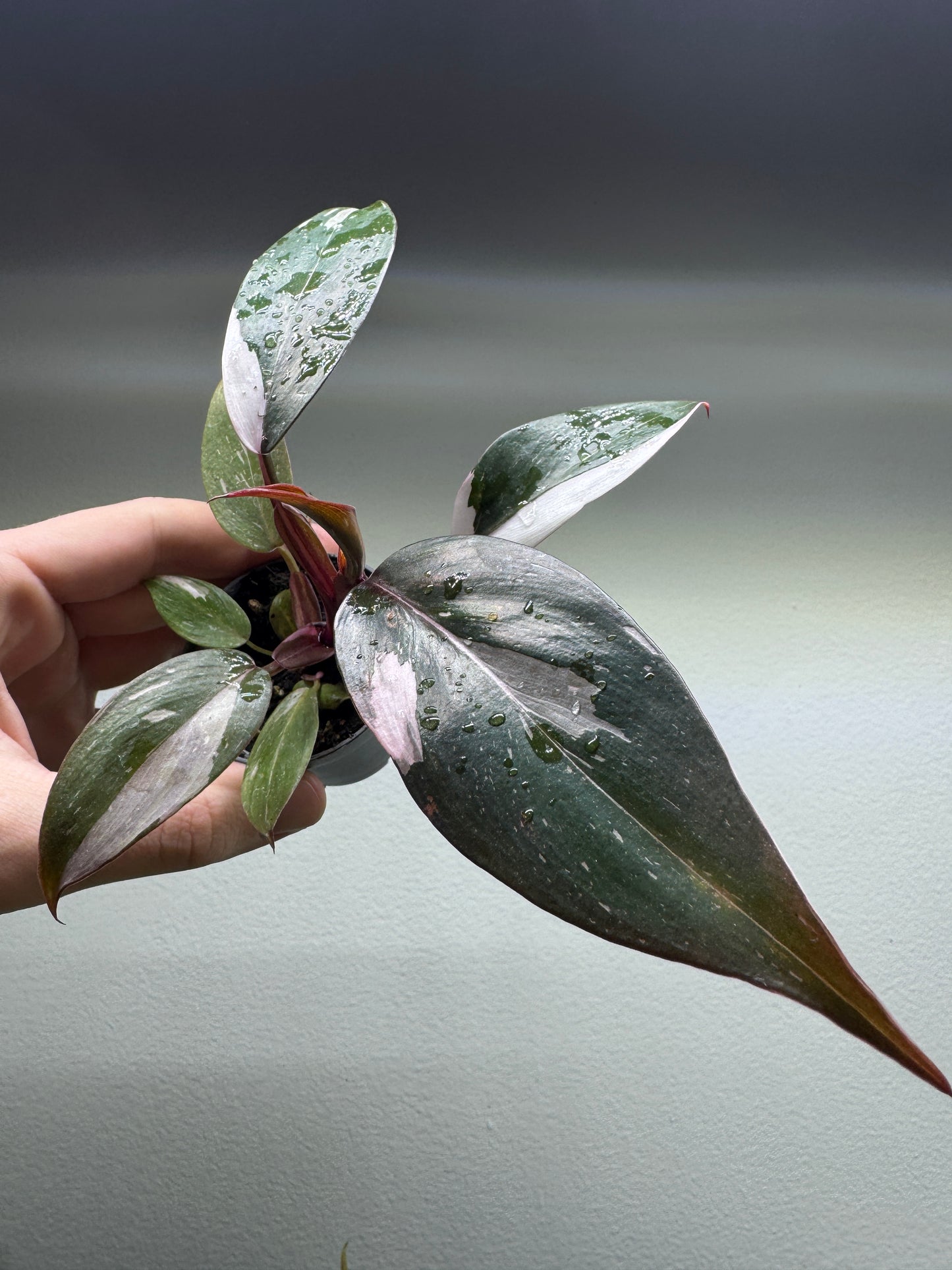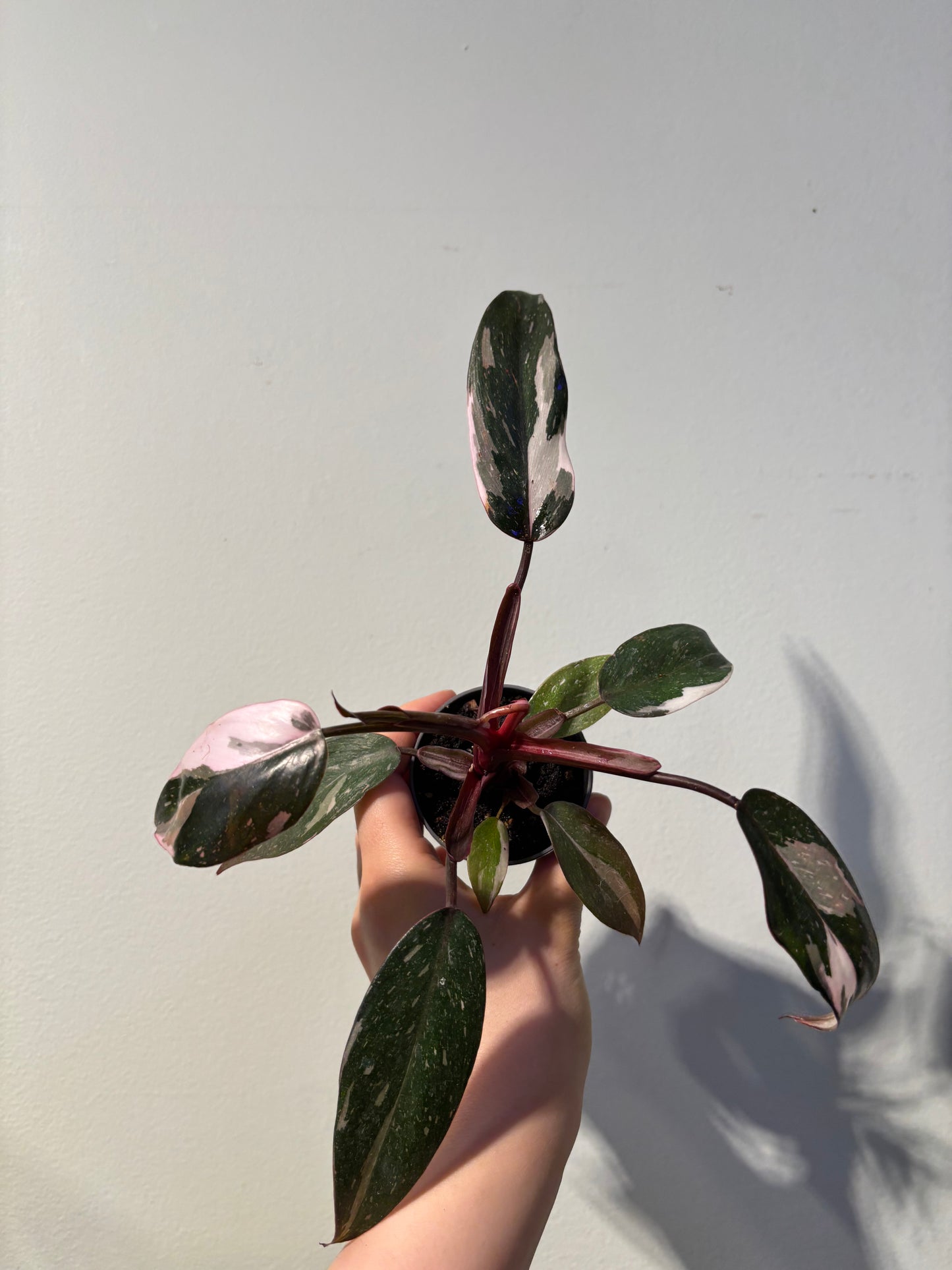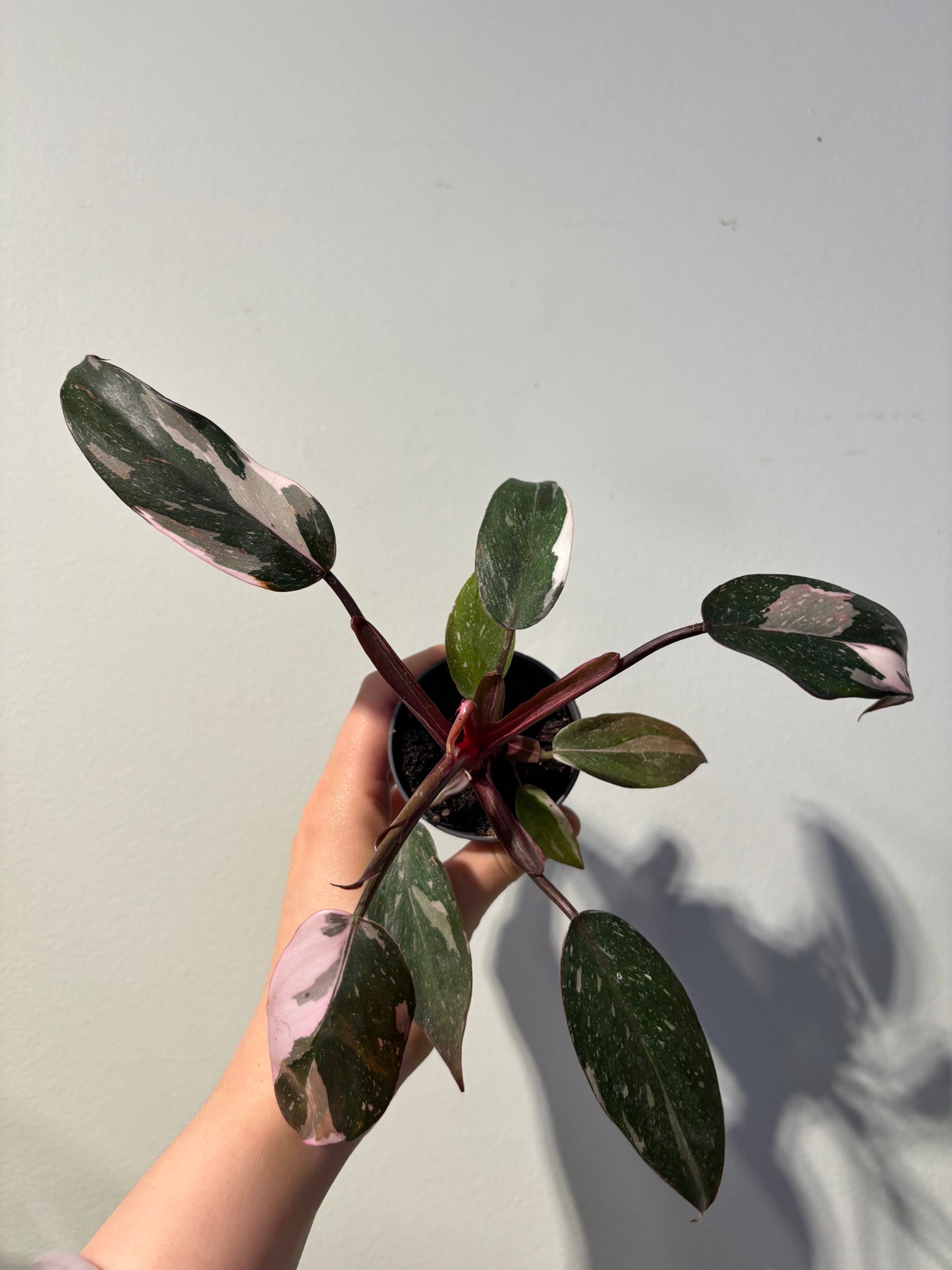- Home
- >
- Best sellers
- >
- Philodendron ’Red Anderson’
Plantthatplant
Philodendron ’Red Anderson’
Philodendron ’Red Anderson’
Impossibile caricare la disponibilità di ritiro
About
About
Philodendron 'Red Anderson' – A Rare, Exotic Philodendron with Colorful Variegation
Philodendron 'Red Anderson' is an exceptionally rare and exotic plant known for its stunning tricolor variegation. This unique plant features a captivating mix of deep green, creamy white, and soft pink-to-red hues across broad, glossy leaves. As a variegated philodendron, it offers not just bold contrast, but evolving color tones that make every leaf a work of art. A must-have for collectors who crave something truly different.
Specification
Specification
Care guide
Care guide
5 Care Tips for Philodendron 'Red Anderson'
Bright, Indirect Light – Boosts variegation and brings out the plant’s signature pink and red tones.
Well-Draining Aroid Mix – Use a chunky soil mix with perlite, orchid bark, and coco coir to support strong root health.
Water Moderately – Water when the top 1–2 inches of soil feel dry; avoid letting it sit in water.
High Humidity (60–80%) – Helps maintain vibrant colors and prevent crisping of variegated sections.
Rotate Regularly – Turn the plant every couple of weeks for even growth and balanced variegation exposure.
Share






